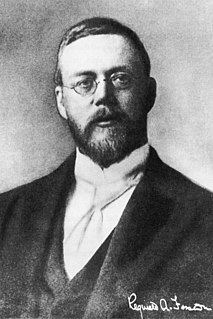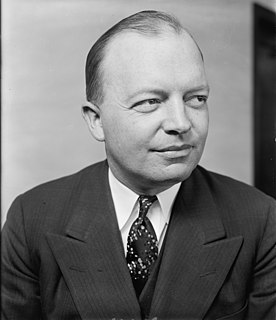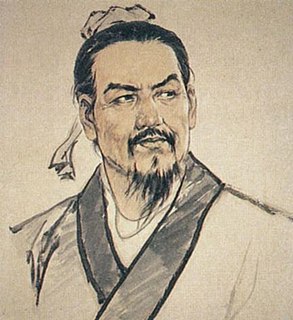A Quote by Henry George
To prevent government from becoming corrupt and tyrannous, its organization and methods should be as simple as possible, its functions be restricted to those necessary to the common welfare, and in all its parts it should be kept as close to the people and as directly within their control as may be.
Related Quotes
A famous, very often quoted phrase says: "That government is best, which governs least." I do not believe this to be a correct description of of the functions of a good government. Government ought to do all the things for which it is needed and for which it is established. Government ought to protect the individuals within the country against the violent and fraudulent attacks of gangsters, and it should defend the country against foreign enemies. These are the functions of government within a free system, within the system of the market economy.
Inflation is probably the most important single factor in that vicious circle wherein one kind of government action makes more and more government control necessary. For this reason all those who wish to stop the drift toward increasing government control should concentrate their effort on monetary policy.
It is all the more necessary under a system of free government that the people should be enlightened, that they should be correctly informed, than it is under an absolute government that they should be ignorant. Under a republic the institutions of learning, while bound by the constitution and laws, are in no way subservient to the government.
In any bureaucratic organization there will be two kinds of people: those who work to further the actual goals of the organization, and those who work for the organization itself. Examples in education would be teachers who work and sacrifice to teach children, vs. union representative who work to protect any teacher including the most incompetent. The Iron Law states that in all cases, the second type of person will always gain control of the organization, and will always write the rules under which the organization functions.
Government has three primary functions. It should provide for military defense of the nation. It should enforce contracts between individuals. It should protect citizens from crimes against themselves or their property. When government-- in pursuit of good intentions tries to rearrange the economy, legislate morality, or help special interests, the cost come in inefficiency, lack of motivation, and loss of freedom. Government should be a referee, not an active player.
The object of leadership may be stated as having a system whereby a leader recognizes what is good for the good of the government, for the good of the nation, for the good of humanity, and recognizes the qualities he has and what he can do within his own limitations. He cannot do, and should not attempt to do, the impossible, but he should not fail to attempt something that might be extremely difficult and may be possible.

































